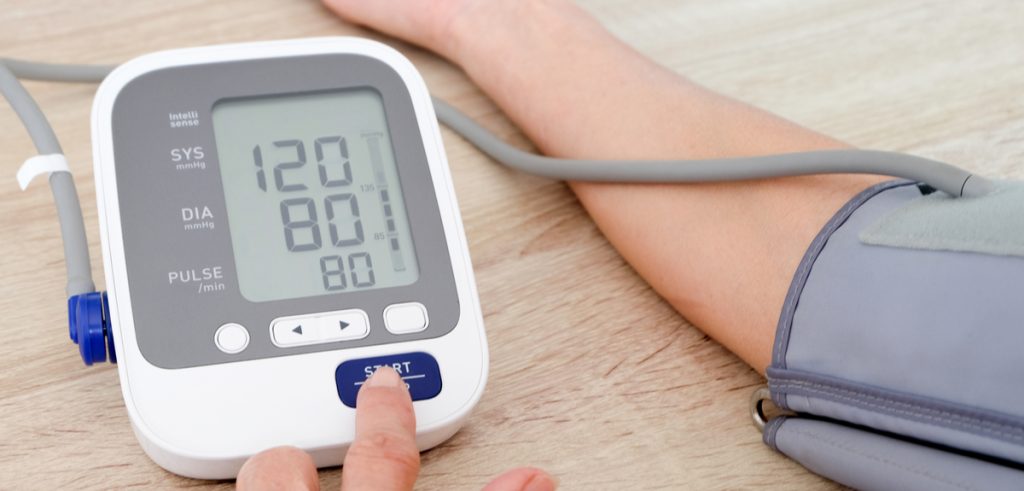Hypertension (High Blood Pressure) HBP
High blood pressure, or hypertension, rarely has noticeable symptoms. But if untreated, it increases your risk of serious problems such as heart attacks and strokes.
Around a third of adults in the UK have high blood pressure, although many will not realise it.
The only way to find out if your blood pressure is high is to have your blood pressure checked.

What is high blood pressure?
Blood pressure is recorded with 2 numbers. The systolic pressure (higher number) is the force at which your heart pumps blood around your body.
The diastolic pressure (lower number) is the resistance to the blood flow in the blood vessels.
They’re both measured in millimetres of mercury (mmHg).
As a general guide:
- high blood pressure is considered to be from 140/90mmHg (or an average of 135/85mmHg at home) – or 150/90mmHg (or an average of 145/85mmHg at home) if you’re over the age of 80
- ideal blood pressure is usually considered to be between 90/60mmHg and 120/80mmHg, while the target for over-80s is below 150/90mmHg (or 145/85mmHg at home)
Blood pressure readings between 120/80mmHg and 140/90mmHg could mean you’re at risk of developing high blood pressure if you do not take steps to keep your blood pressure under control.
Everyone’s blood pressure will be slightly different. What’s considered low or high for you may be normal for someone else.
Risks of high blood pressure
If your blood pressure is too high, it puts extra strain on your blood vessels, heart and other organs, such as the brain, kidneys and eyes.
Persistent high blood pressure can increase your risk of a number of serious and potentially life-threatening health conditions, such as:
- heart disease
- heart attacks
- strokes
- heart failure
- peripheral arterial disease
- aortic aneurysms
- kidney disease
- vascular dementia
If you have high blood pressure, reducing it even a small amount can help lower your risk of these health conditions.
Check your blood pressure
The only way of knowing whether you have high blood pressure is to have a blood pressure test.
All adults over 40 are advised to have their blood pressure checked at least every 5 years.
Getting this done is easy and could save your life.
You can get your blood pressure tested at a number of places, including:
- at your GP surgery
- at some pharmacies
- as part of your NHS Health Check
- in some workplaces
You can also check your blood pressure yourself with a home blood pressure monitor.
